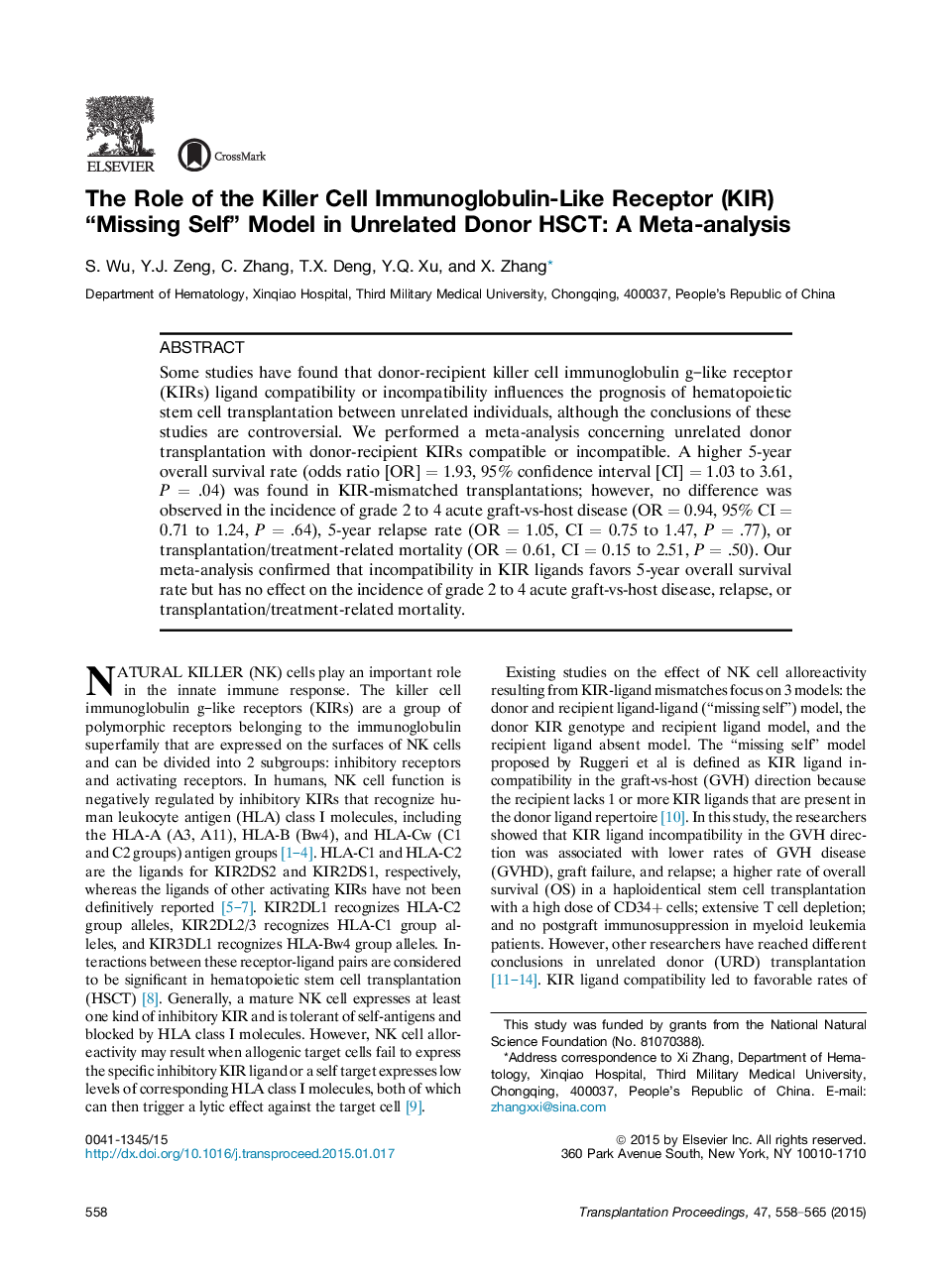| Article ID | Journal | Published Year | Pages | File Type |
|---|---|---|---|---|
| 4257643 | Transplantation Proceedings | 2015 | 8 Pages |
•Killer cell immunoglobulin-like receptor (KIR) ligand compatibility or incompatibility influences the prognosis of hematopoietic stem cell transplantation between unrelated individuals, although the conclusions of these studies are controversial.•We performed a meta-analysis concerning unrelated donor transplantation with donor-recipient KIRs compatible or incompatible.•Incompatibility in KIR ligands favors 5-year overall survival but has no effect on the incidence of grade 2 to 4 acute graft-vs-host disease, relapse, or transplantation/treatment-related mortality.•No differences were observed in the incidence of grade 2 to 4 acute graft-vs-host disease, 5-year relapse rate, or transplantation/treatment-related mortality.
Some studies have found that donor-recipient killer cell immunoglobulin g–like receptor (KIRs) ligand compatibility or incompatibility influences the prognosis of hematopoietic stem cell transplantation between unrelated individuals, although the conclusions of these studies are controversial. We performed a meta-analysis concerning unrelated donor transplantation with donor-recipient KIRs compatible or incompatible. A higher 5-year overall survival rate (odds ratio [OR] = 1.93, 95% confidence interval [CI] = 1.03 to 3.61, P = .04) was found in KIR-mismatched transplantations; however, no difference was observed in the incidence of grade 2 to 4 acute graft-vs-host disease (OR = 0.94, 95% CI = 0.71 to 1.24, P = .64), 5-year relapse rate (OR = 1.05, CI = 0.75 to 1.47, P = .77), or transplantation/treatment-related mortality (OR = 0.61, CI = 0.15 to 2.51, P = .50). Our meta-analysis confirmed that incompatibility in KIR ligands favors 5-year overall survival rate but has no effect on the incidence of grade 2 to 4 acute graft-vs-host disease, relapse, or transplantation/treatment-related mortality.
